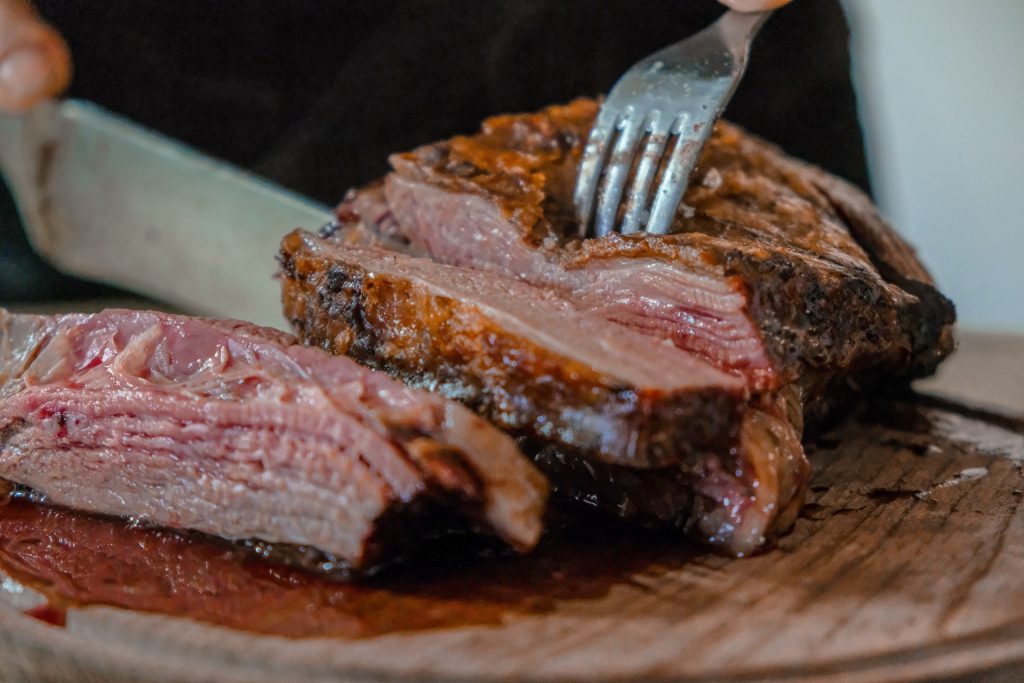
Older adults require more protein but eat less than younger people, making it a challenge for them to maintain muscle mass. Eating a meal with meat ensures that muscle proteins are built faster than a vegan meal with the same amount of protein. This study, published in The Journal of Nutrition, was the first to compare the speed at which muscle proteins are being made after eating a complete meal with animal or plant proteins.
Every two to three months the proteins in human muscle are completely renewed. In order to make muscle proteins, we need protein from food, for example from animal sources such as meat, cheese and yoghurt, or from plant products such as beans, nuts and soymilk. Previous research on protein powders showed that animal proteins have better muscle-building properties than plant proteins. “But in reality, we do not get our proteins in powder form, but through complete meals,” says study author and PhD student Philippe Pinckaers. “Those meals contain different types of protein and other nutrients such as fibres, fats and carbohydrates. These nutrients affect how proteins are released from the diet and influences the making of muscle proteins.”
To investigate how muscles respond after eating a complete meal, Pinckaers asked 16 participants aged over 65 to come to the lab twice for a dinner meal.
Dining out in the lab
On one day, the participants sat down to a meal with quinoa with chickpeas, broad beans, soy beans and soy sauce was on the menu, while on the other day the menu consisted of a beef tartlet, potatoes, green beans, apple sauce and herb butter. Both meals had similar amounts of protein, fat, carbohydrates and calories. Prior to the meals, participants were administered an infusion of special amino acids.
“The amino acids administered via the infusion were marked, as it were with a flag,” Pinckaers explains. “We took small pieces of muscle tissue from the participants and were able to measure the amount of ‘flags’ in them. If more flags are measured, it means that muscle proteins are built up faster, which is beneficial for muscles. In this way, we found that after eating a meal with animal protein, muscle protein was built up faster than after eating a vegan meal. This means that a vegan meal does not have the same capacity to make muscle proteins as a meal that includes animal proteins.” This difference arises partly because plant-based foods are harder to digest, and because they naturally contain fewer essential amino acids.
Context is key
The results do not mean that everyone should eat meat or other animal products, clarifies professor of exercise science and lead researcher Luc van Loon. “Healthy people can very well compensate for the lower quality of plant proteins by eating more of them.” For elderly or frail patients it is a bit more complicated. “Elderly people actually need more protein in order to reach the same level of muscle protein synthesis, when compared to young individuals. However, they actually eat less. Also, patients with reduced appetite or who do not exercise much, for example during hospitalisation, may have trouble consuming a sufficient amount of protein. For them, it is therefore important to choose protein sources that stimulate the making of muscle proteins as much as possible. The best sources in this situation would be proteins from animal products.”
Source: Maastricht University

